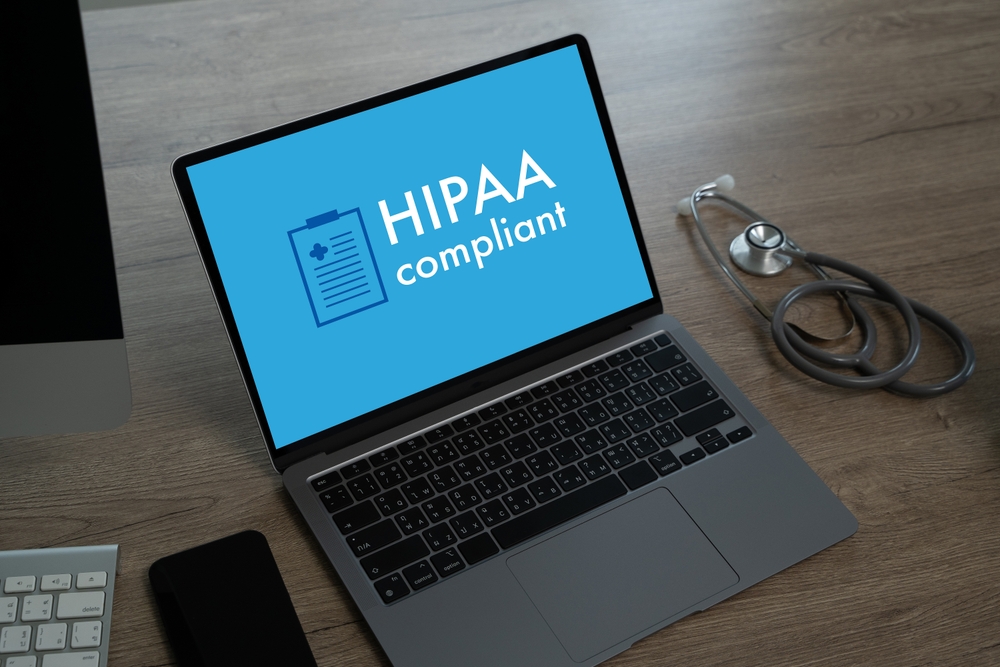
HIPAA compliance is critical for medical practices, clinics, hospitals, and even medical spas that handle protected health information (PHI). While most providers are familiar with HIPAA rules in the context of patient records and billing, many underestimate how these regulations apply to their websites. With the increasing use of online forms, patient portals, appointment booking, and telehealth integrations, your website can become a vulnerable entry point for sensitive patient data if not properly secured.
At MedWeb360, we specialize in creating HIPAA-compliant websites for healthcare providers, ensuring that every website component—from hosting to forms software—is designed to meet regulatory standards. Below, this guide explores how HIPAA compliance applies to medical websites. Additionally, we discuss why it matters and the actionable steps you can take to protect your patients and your practice.
What Is HIPAA Compliance?
The Health Insurance Portability and Accountability Act (HIPAA) sets federal standards for protecting sensitive patient information. Compliance is required for healthcare providers, health plans, and business associates who handle PHI. Furthermore, PHI includes any information that can identify a patient, such as:
- Full name, date of birth, and Social Security number
- Medical records, diagnoses, and treatment history
- Health insurance details
- Appointment information and contact details
- Online form submissions containing health-related questions
For websites, HIPAA compliance means ensuring that all online data collection, storage, and transmission is secure and encrypted. Moreover, non-compliance can result in severe fines, legal penalties, and loss of patient trust.
Why HIPAA Compliance Matters for Medical Websites
Websites are no longer static brochures. They serve as a portal for patients to interact with your practice, schedule appointments, submit forms, request prescription refills, or access telehealth services. Each of these interactions can involve PHI, which means that a non-compliant website can expose your practice to serious risks, including:
- Data Breaches: Unauthorized access to patient information can occur if your website or hosting environment is insecure.
- Financial Penalties: HIPAA violations can result in fines ranging from $100 to $50,000 per violation, with annual maximums exceeding $1.5 million for repeated offenses.
- Reputation Damage: Patients expect healthcare providers to protect their information. A breach or compliance violation can erode trust and result in lost business.
- Legal Consequences: Non-compliance may lead to lawsuits and audits from federal agencies.
By implementing HIPAA-compliant hosting and forms software, you minimize these risks and reassure patients that their sensitive data is protected.
HIPAA-Compliant Hosting for Medical Websites
One of the most critical aspects of website compliance is hosting. HIPAA-compliant hosting ensures that your website server meets all security standards required to protect PHI. Key features include:
- Data Encryption: All data stored on the server is encrypted, and transmissions between your website and the server use SSL/TLS protocols.
- Access Controls: Only authorized personnel can access PHI on the server, with strong password policies and multi-factor authentication.
- Automatic Backups: HIPAA-compliant hosting providers offer secure, regular backups to prevent data loss.
- Audit Logs: Every access and change to PHI is logged for compliance audits.
- Business Associate Agreement (BAA): Your hosting provider signs a BAA, a HIPAA requirement that holds them accountable for protecting patient data.
At MedWeb360, we partner with HIPAA-compliant hosting providers to ensure every website we develop meets these standards. Obviously, this gives your practice peace of mind while safeguarding sensitive patient information.
HIPAA-Compliant Forms Software
Forms are a major area where medical websites handle PHI. Appointment requests, patient intake forms, contact forms, and telehealth registrations all collect sensitive data. Standard form plugins or third-party tools that are not HIPAA-compliant can expose your practice to violations.
HIPAA-compliant forms software includes the following features:
- Secure Data Transmission: All form submissions are encrypted using SSL/TLS protocols to prevent interception.
- Encrypted Storage: Submitted data is stored securely and encrypted at rest.
- Access Controls: Only authorized staff can access submitted forms, typically through a secure dashboard.
- Audit Trails: Every form submission and access is logged to comply with HIPAA audit requirements.
- BAA with Providers: If using third-party forms software, ensure they sign a Business Associate Agreement.
MedWeb360 implements HIPAA-compliant forms software tailored to your practice, ensuring that patient submissions are fully secure. Whether your website collects new patient intake forms, COVID-19 screening data, or telehealth consent forms, we make sure all submissions meet HIPAA standards.
Best Practices for HIPAA Compliance on Your Medical Website
Beyond hosting and forms, there are several best practices every healthcare website should follow to maintain HIPAA compliance:
- SSL Certificates: Always use SSL certificates to encrypt website traffic, protecting sensitive data in transit.
- Secure Login Areas: Patient portals should require strong passwords, multi-factor authentication, and timeouts for inactivity.
- Minimal PHI Collection: Only collect information necessary for the service requested. Avoid asking for unnecessary sensitive data on public forms.
- Privacy Policy: Include a clear HIPAA-compliant privacy policy explaining how PHI is collected, stored, and used.
- Regular Security Audits: Conduct periodic audits of your website, server, and third-party integrations to ensure compliance is maintained.
- Staff Training: Ensure all staff who handle PHI know how to manage patient data securely and recognize phishing or security threats.
- Telehealth Compliance: If your website integrates telehealth, ensure the platform meets HIPAA standards and uses secure video conferencing.
By following these best practices, your practice can prevent breaches, maintain patient trust, and demonstrate a commitment to regulatory compliance.
Common HIPAA Violations on Websites
Even well-meaning practices can inadvertently violate HIPAA on their websites. Common mistakes include:
- Using non-secure contact forms that collect PHI.
- Storing patient data in unencrypted databases or emails.
- Failing to sign BAAs with hosting or software providers.
- Sharing PHI via social media or unsecured messaging apps.
- Neglecting regular software updates or security patches.
MedWeb360 audits existing websites to identify these risks and implements solutions to prevent violations. From updating security protocols to replacing non-compliant software, we ensure your website meets HIPAA standards without sacrificing functionality or patient experience.
Step-by-Step Guide to HIPAA-Compliant Website Development
- Choose HIPAA-Compliant Hosting: Select a hosting provider that offers encrypted storage, access controls, audit logs, and a BAA.
- Use Secure Forms Software: Implement forms that encrypt submissions, store data securely, and limit access to authorized staff only.
- Implement SSL Certificates: Ensure all website traffic is encrypted to protect PHI during transmission.
- Limit PHI Collection: Only ask for necessary patient information and avoid sensitive data on unsecured pages.
- Create a HIPAA Privacy Policy: Clearly explain how PHI is collected, stored, and used on your website.
- Secure Patient Portals: Use strong authentication, encryption, and session timeouts for portal access.
- Audit Third-Party Tools: Ensure any plugins, booking systems, or telehealth software are HIPAA-compliant and signed BAAs.
- Train Your Team: Educate staff on HIPAA requirements and proper handling of online patient data.
- Regular Security Updates: Continuously monitor, update, and patch your website and integrations to maintain compliance.
Conclusion
HIPAA compliance is not optional for medical websites. Protecting patient information online is essential for regulatory compliance, trust, and the overall success of your practice. From HIPAA-compliant hosting to secure forms software and patient portals, every component of your website must meet strict standards to safeguard PHI.
At MedWeb360, we specialize in developing and managing HIPAA-compliant websites for medical practices of all types, including dentistry, dermatology, cardiology, urology, allergy clinics, and medical spas. Our team ensures your website is secure, functional, and optimized to attract new patients while protecting sensitive data. Additionally, implementing these strategies strengthens patient confidence and your practice’s online reputation.
Ready to make your website fully HIPAA-compliant? Contact MedWeb360 today for a consultation and secure, compliant website solutions.











